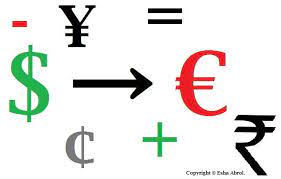For most consumers, shopping online has become the primary way they interact with the retail world. Ecommerce has broken down regional borders, bringing shoppers and merchants together in an international marketplace that exists solely online.
A foreign exchange (FX) management or currency conversion is an essential aspect of international business but many cross-border sellers lack the required level of expertise in this area, ultimately resulting in lost sales and disgruntled customers.
Here are six things every cross-border seller should know about Foreign Exchange:
- Accept payments in local currency
Proprietary research suggests that 25% of shoppers will leave a website if their preferred currency is not offered. That’s a huge loss of sales for cross-border sellers.
- Converting currencies externally reduces sales
One reason customers stop buying is due to currency conversion. Not only will this direct them away from your site, but there is also something of a discrepancy in currency conversion. The external converters typically use the mid-market interbank rate instead of the inferior retail rate that consumers would actually be required to pay, which causes disappointment when the true cost appears on their card statement.
- Conversion rates are high for foreign currencies
Many consumers are unaware that banks charge between 3% and 5% for currency conversions. On top of that, they also charge an extra 3-5% for purchases made in foreign currencies, which will not be revealed by the currency converter. Consequently, customers are often shocked to discover their purchase ended up costing significantly more, and are unlikely to purchase again.
- A disgruntled customer always blames the merchant
Suppose you go online to make a purchase. However, at checkout, your transaction gets declined. You have money available so you try again. However, it still is declined. As a customer, you don’t know why it’s happening, so you just go to a competitor’s site to purchase. However, it’s not always the merchant’s fault, but the bank’s.
Foreign currency transactions may be considered as fraud attempts by the bank, and the transaction could be blocked. Not only are your sales impaired, but not many consumers will return to your site following the negative experience. Foreign exchange damages reputations and customer satisfaction on a regular basis, but it doesn’t have to.
- There are fluctuations in exchange rates.
Cross-border sellers also struggle with the issue of timeliness when converting foreign exchange rates of their websites. Treasury departments usually accumulate funds on an incremental basis and execute periodic transactions quarterly. However, exchange rates may fluctuate, causing a significant loss in profits if you delay too long in converting.
- Foreign Exchange Value for Consumers and Merchants
There are additional ways that merchants can leverage FX to their own benefit. Customers can gain a competitive price by paying with their native currency, while merchants are increasing revenue and eliminating confusion regarding the all-in cost. The customer is happy because there won’t be any surprises on their credit card bill, and you’ve created some additional revenue instead of giving it to the banks.

